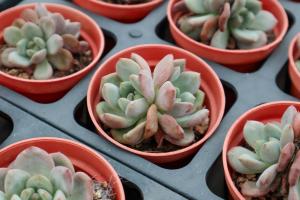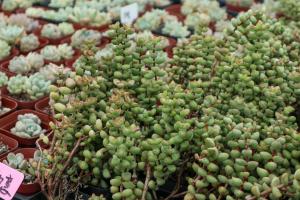Introduction
Biodegradable plant pots are becoming popular among gardeners and farmers due to their eco-friendliness. These types of pots are made from plant-based materials that decompose naturally, making them an eco-friendly option for growers who are concerned about the impact of plastic waste on the environment. In this article, we will explore the materials used to make biodegradable plant pots and their benefits.
Materials used in biodegradable plant pots
Biodegradable plant pots are made from a variety of plant-based materials including rice husks, bamboo, coconut coir, straw and various types of plant-based plastic. One of the most commonly used materials is rice husk, which is an agricultural waste product that is abundant in countries such as China, India and Vietnam. Rice husk pots are durable and can last up to three years before they decompose naturally in the soil.
Bamboo pots are another popular option that is biodegradable and can decompose within 6 to 12 months in the soil. Coconut coir pots are made from the fibrous material that is left over after the coconut husk is removed. These biodegradable pots are environmentally friendly and can last up to two years before decomposing.
Plant-based plastics are also used to make biodegradable plant pots. These plastics are made from renewable sources such as corn starch, cassava, and sugarcane. They are durable and will break down in the soil within six months to two years.
Benefits of using biodegradable plant pots
There are many benefits to using biodegradable plant pots, some of which are outlined below:
Eco-Friendly: Biodegradable plant pots are an eco-friendly alternative to plastic pots that contribute to the buildup of plastic waste in the environment.
Reduced landfill waste: Biodegradable plant pots decompose naturally, which reduces the amount of organic waste that ends up in landfills.
Improved plant growth: Biodegradable plant pots allow for better water drainage and help to prevent root rot. They also provide a more natural environment for the plants to grow in.
Save time and energy: Biodegradable plant pots eliminate the need to transplant seedlings, saving time and energy in the process.
Cost-effective: While biodegradable plant pots may be slightly more expensive than traditional plastic pots, they offer a more cost-effective option in the long run as they do not need to be replaced as often.
Conclusion
Biodegradable plant pots are becoming increasingly popular among gardeners and farmers due to their eco-friendliness and the benefits they offer. They are made from a variety of plant-based materials that are renewable, such as rice husks, bamboo, coconut coir and plant-based plastics. These materials decompose naturally, reducing the amount of organic waste that ends up in landfills. By choosing biodegradable plant pots, growers can improve plant growth, save time and energy, and contribute to a more sustainable future.

 how many times do yo...
how many times do yo... how many planted tre...
how many planted tre... how many pine trees ...
how many pine trees ... how many pecan trees...
how many pecan trees... how many plants comp...
how many plants comp... how many plants can ...
how many plants can ... how many plants and ...
how many plants and ... how many pepper plan...
how many pepper plan...































